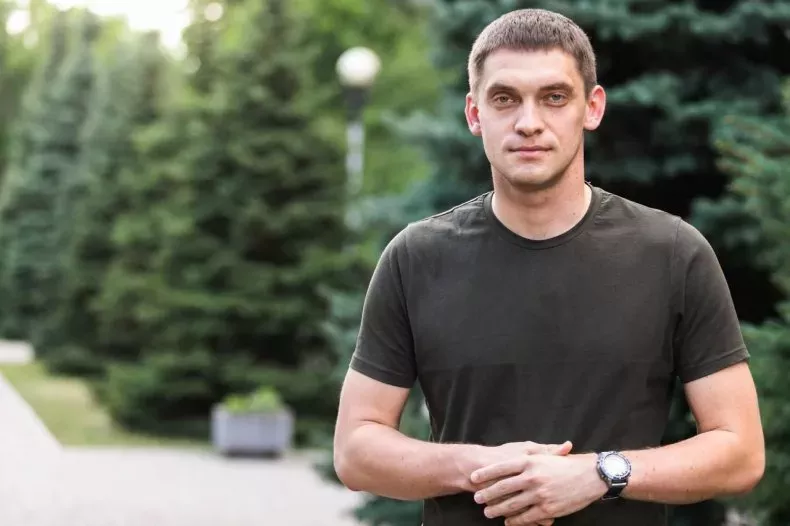
The exiled mayor of Ukraine’s southern city of Melitopol—occupied by Russian troops in March—has said partisans across the south of the country plan to disrupt Moscow’s phony referendums, which are now expected to be held later this month.
Ivan Fedorov—who was abducted by Russian troops in March before being freed later that month in a special Ukrainian operation—told Newsweek that local partisans, special forces, and intelligence operatives will make it “impossible” for Russia to establish puppet separatist states in occupied Zaporizhzhia and Kherson oblasts.
“They want to do it in August, but it’s not possible,” Fedorov said in a phone call on Monday from the city of Zaporizhzhia, less than 20 miles from the front line to the south.
“In the last two weeks they have surveyed citizens to see who is ready to give support to the Russians,” the mayor said. “We had a great result; less than 10 percent of our citizens who are still in Melitopol agreed to give support to the Russians.”
Newsweek Newsletter sign-up >
“The Russians have no support in Melitopol and in other occupied territories. With the referendum, we don’t know when they will start. They have a very bad situation in Melitopol.”
July reports suggested the Russians were planning to hold referendums in mid-September. The Institute for the Study of War has said occupying authorities may accelerate their plans and hold the votes in August.
Fedorov said the Russians are struggling to cement their control despite a crackdown on locals. Some 500 people, he said, have been kidnapped from Melitopol by occupying forces since March.
Newsweek subscription offers >
“They don’t understand how they can save their ‘referendum,'” he said. “Now, they don’t want to do it in one day, they want to do it across one week. They don’t want special voting places, but instead people who will go to flats and ask, ‘Do you want to live as Russians or not?'”
This approach, Fedorov said, will make it easier for Russian authorities to falsify the result in favor of declaring independence from Ukraine, and perhaps joining Russia.
Russia in 'Tremendous' Military Difficulty in Ukraine War: Lange
Ukraine Says Air Force 'Defending Sky' as Russia Struggles to Gain Control
Russians 'No Longer Able To Resist HIMARS': Front-Line Ukrainian MayorPartisans, supported by Ukrainian special forces and intelligence operatives, have been conducting a guerrilla war across the occupied south. Top-ranking collaborators have been killed in the cities of Kherson and Melitopol as residents await a long-planned Ukrainian counter-offensive to liberate the territories.
“We work together on these plans, and now we can’t say about the work we will do,” Fedorov said of planned operations to disrupt and devalue the planned Russian referendums. “I hope the referendum in Melitopol will be impossible.”
“All of us must do our jobs,” he said. “Now, our job is to make it impossible to hold a referendum in our territory. If in this time our soldiers will liberate Melitopol, that will be great.”
The work of local partisans was on full display on Sunday night, as Ukrainian forces destroyed two Russian military positions using long-range fires, reportedly U.S.-made HIMARS. Fedorov celebrated the success on Telegram, claiming some 100 Russian soldiers were killed in one of the attacks.
“The main tasks for the partisans are, first of all, to destroy all deliveries of weapons and hard equipment of the Russians,” Fedorov said. “The second goal is to demoralize all collaborators and occupants; they can’t feel safe in our territory.”
“And third—we saw the result of this third goal last night—is to give information to our military and secret services about the locations of Russian military bases and other sites. That’s why today we’ve had a great special operation to destroy two military bases.”
Meanwhile, Fedorov’s team, security services, and prosecutors are collecting information on collaborators who are making Russia’s occupation possible.
“We have a list of collaborators,” Fedorov said. “It’s rather full, because many citizens from Melitopol have given us much information about collaboration, about those who do jobs in Melitopol for the Russians. That’s how we know all of this information.”
“We have all the names,” he said. “There are more than 500.”




